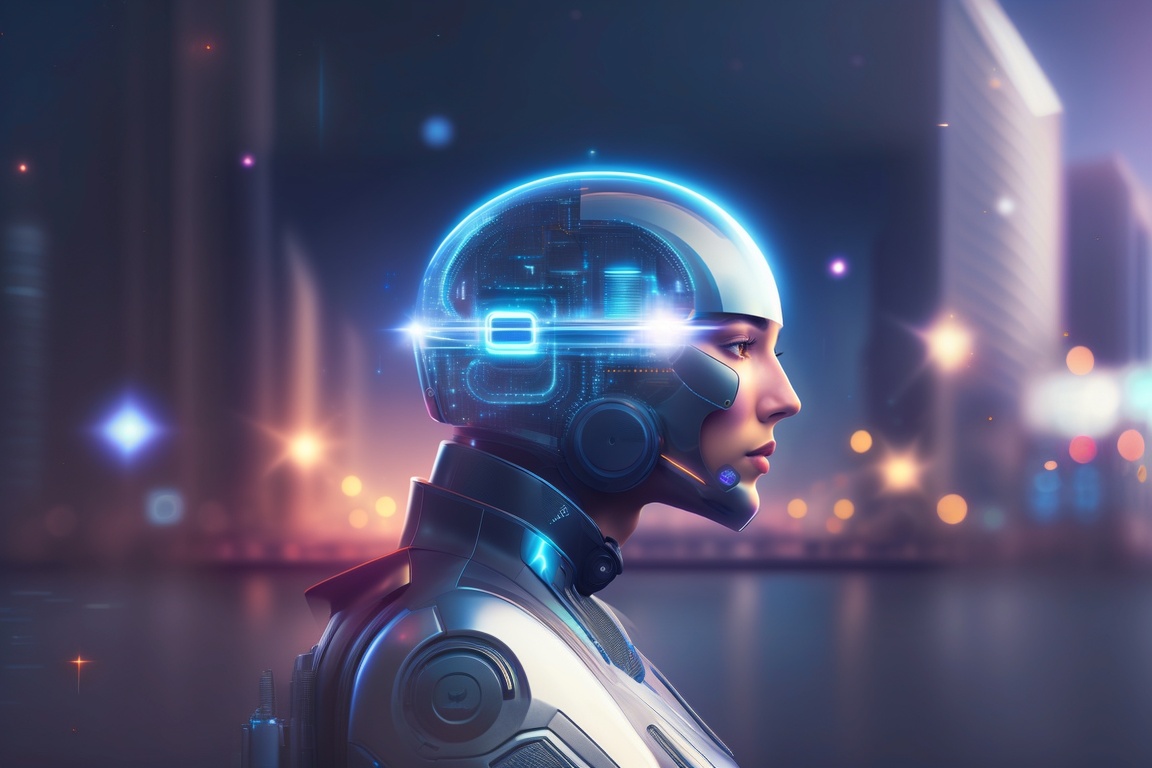Artificial intelligence (AI) has emerged as a groundbreaking technology with the potential to transform various aspects of our lives. One area where AI is making significant strides is its impact on the human brain. As AI continues to advance, it is revolutionizing our understanding of the brain and opening up new possibilities for enhancing cognitive abilities. In this article, we will explore the intriguing ways in which AI is influencing the human brain and the implications it holds for the future.
To comprehend the impact of AI on the human brain, it is essential to understand the fundamental concepts of AI. AI is a field of computer science that focuses on creating intelligent machines capable of mimicking human cognitive processes. Machine learning and neural networks are at the core of AI. These technologies enable computers to learn from data, recognize patterns, and make predictions or decisions without explicit programming.
One fascinating aspect of AI is its ability to mimic the human brain. Researchers have developed neural networks that simulate the structure and function of the brain, enabling machines to process information and learn in a similar way. Deep learning, a subset of machine learning, has gained significant attention for its remarkable capacity to solve complex problems by building layered neural networks.
The impact of AI on the human brain is evident in its potential to enhance cognitive abilities. AI-assisted memory augmentation is a prime example. By leveraging AI algorithms, individuals can improve memory recall and cognitive performance. These AI systems analyze data, such as personal experiences or factual information, and provide personalized prompts or cues to assist with memory retrieval.
Furthermore, AI is playing a crucial role in developing cognitive prosthetics for individuals with neurodiverse conditions. By utilizing AI algorithms, these prosthetics provide real-time support to individuals with conditions such as autism or attention deficit hyperactivity disorder (ADHD). Cognitive prosthetics help improve attention, focus, and task completion by offering personalized interventions and reminders.
Advancements in brain-computer interfaces (BCIs) and neural implants are also shaping the impact of AI on the human brain. BCIs establish a direct communication pathway between the brain and an external device, enabling individuals to control external devices through their thoughts. This technology holds immense potential for individuals with paralysis or other motor impairments, providing them with the ability to interact with the world using AI-powered assistive devices.

AI is not only influencing the human brain at an individual level but also unlocking insights into collective brain behavior. AI-based analysis of brain imaging data, such as functional magnetic resonance imaging (fMRI), enables researchers to understand brain function, identify patterns, and predict mental health disorders. By applying machine learning algorithms to brain imaging data, researchers can detect early signs of conditions like Alzheimer’s disease or schizophrenia, leading to early interventions and improved treatment outcomes.
However, as AI continues to penetrate the realm of the human brain, ethical considerations and challenges arise. Privacy concerns regarding the collection and security of brain data must be addressed to ensure the trust and confidentiality of individuals’ neural information. Transparency and accountability in AI brain research are vital to maintain public trust and ethical standards.
Additionally, the ethical implications of brain manipulation and enhancement through AI technologies require careful examination. Questions of cognitive enhancement and potential inequalities may arise. It is crucial to ensure that the development and deployment of brain-related AI technologies align with ethical guidelines and respect individual autonomy and well-being.
Looking ahead, the future of AI and the human brain holds tremendous promise. The concept of augmented intelligence, where AI complements and enhances human intelligence, has the potential to revolutionize fields such as healthcare and education. AI-powered innovations in healthcare could lead to personalized treatment plans, improved diagnosis, and better management of chronic conditions. In education, AI can adapt to individual learning styles, provide tailored feedback, and create immersive learning experiences.
To harness the full potential of AI and



